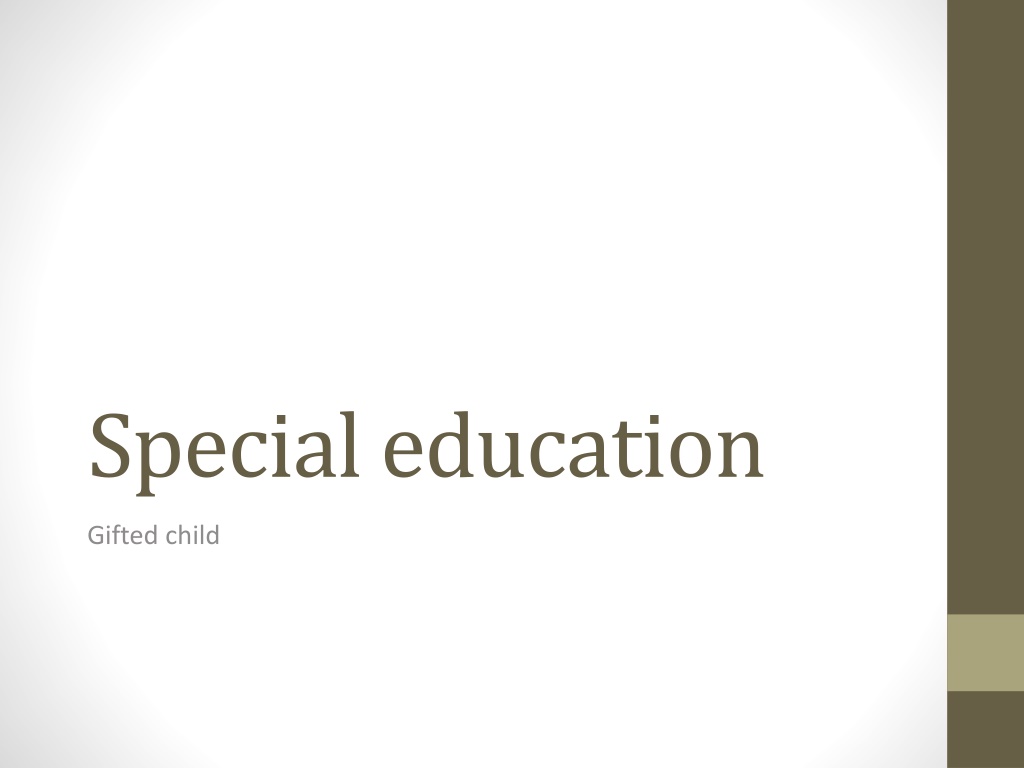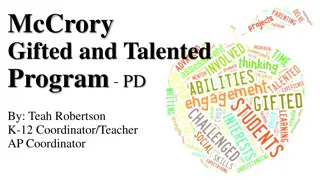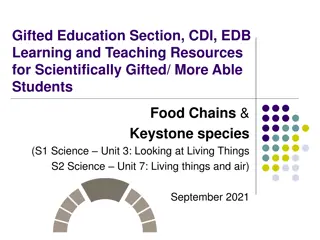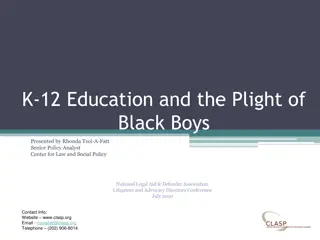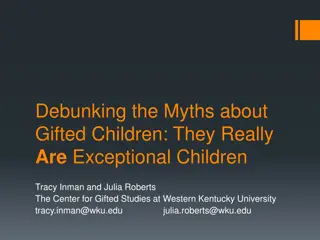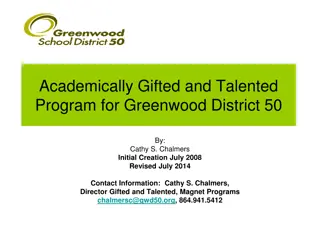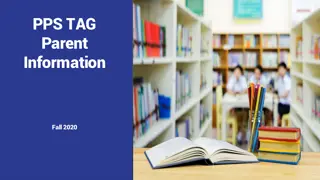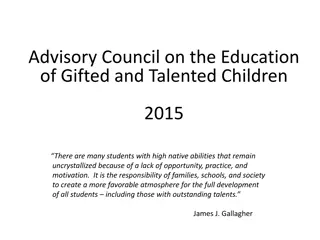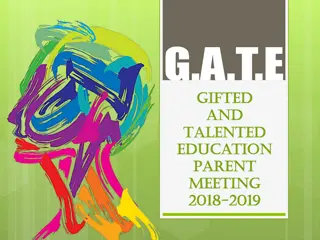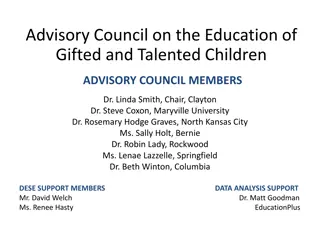Understanding Gifted Children: Characteristics and Support
Gifted children possess high levels of general mental ability or extraordinary talent in specific areas. Intellectual giftedness, often defined by IQ scores above 130, can manifest in various talents such as verbal, mathematical, and artistic abilities. These children may face challenges like loneliness, unconventional behavior, and underachievement at school, highlighting the importance of specialized support and recognition.
Download Presentation

Please find below an Image/Link to download the presentation.
The content on the website is provided AS IS for your information and personal use only. It may not be sold, licensed, or shared on other websites without obtaining consent from the author. Download presentation by click this link. If you encounter any issues during the download, it is possible that the publisher has removed the file from their server.
E N D
Presentation Transcript
Special education Gifted child
Definition of Gifted child Gifted child, any child who is naturally endowed with a high degree of general mental ability or extraordinary ability in a specific sphere of activity or knowledge. The designation of giftedness is largely a matter of administrative convenience. In most countries the prevailing definition is an intelligence quotient (IQ) of 130 or above. Increasingly, however, schools use multiple measures of giftedness and assess a wide variety of talents, including verbal, mathematical, spatial-visual, musical, and interpersonal abilities
Intellectual giftedness intellectual significantly higher than average. It is a characteristic of children, variously defined, that motivates differences in school programming. It is thought to persist as a trait into adult life, with various longitudinal studies of giftedness over the last century. There is no generally agreed definition of giftedness for either children or adults, but most school placement decisions and most longitudinal studies over the course of individual lives have been based on IQ in the top 2 percent of the population, that is above IQ 130. giftedness is an intellectual ability consequences studied in
Components of Giftedness definitions The various definitions of intellectual giftedness include either general high ability or specific abilities. For example, by some definitions an intellectually gifted person may have a striking talent for mathematics without equally strong language skills. In particular, the relationship between artistic ability or musical ability and the high academic ability usually associated with high IQ scores is still being explored, with some authors referring to all of those forms of high ability as "giftedness," while other authors distinguish "giftedness" from "talent." There is still much controversy and much research on the topic of how adult performance unfolds from trait differences in childhood, and what educational and other supports best help the development of adult giftedness. hundred children, approximately five can be classified as "gifted", yet only a small proportion may be identified as such in school Out of every
Some may be very lonely because their interests do not match those of their peers. They may have difficulties at school because of their unconventional behavior and questioning attitude. They can become distressed through frustration and boredom, through imbalance between their intellectual and emotional development. intelligence and underachieve so as to become more acceptable to their peers. troublemakers. We need to recognize and cater for gifted children to ensure this does not happen or They may deny their They may become
